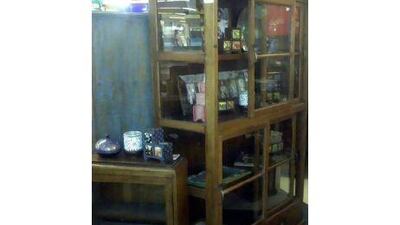Dubai's Times Square might not have quite the same lure as some of the bigger malls, but at the moment there's added reason to pay the oft-ignored shopping centre on Sheikh Zayed Road a visit. And hurry down, because it is only until tomorrow that you'll find Jerome Dhulst, the founder of Antika Dubai there, along with a selection of his company's wares, which include authentic antique furniture sourced from India - tables, chests of drawers, display cabinets, screens, mirrors - and a number of individual items made from wood reclaimed from demolished houses in northern India.
The company aims to source goods that are "beautiful, original, solid and affordable". As well as being environmentally friendly, the pieces are quirky and colourful and have a weathered, vintage look to them.
Antika Dubai is on the ground floor of the Times Square Center in Dubai. The exhibition is in partnership with Faubourg Designs.
For more information, contact Jerome Dhulst at jd@antikadubai.com or call 050 485 1583.

